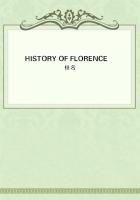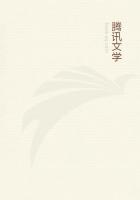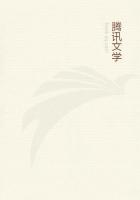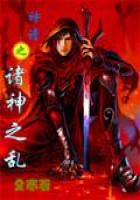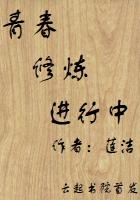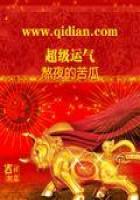QUI M'AIME, AIME MON CHIEN
On ****** this discovery Maurice was inclined to declaim in that vigorous vocabulary which is taboo.He had been tricked.He was no longer needed at the Red Chateau.Four millions in a gun barrel; hoax was written all over the face of it, and yet he had been as unsuspicious as a Highland gillie.Madame had tricked him; the countess had tricked him, the Colonel and Fitzgerald.
That Madame had tricked him created no surprise; what irritated him most was the conviction that Fitzgerald was laughing in his sleeve, and that he had misjudged the Englishman's capacity for dissimulation.Very well.He threw the gun on the bed; he took Fitzgerald's pipe from his pocket and cast it after the gun, and with a gesture which placed all the contents of the room under the ban of his anathema, he strode out into the corridor, thence to the office.
Here the message to Madame from Beauvais flashed back.The Colonel of the royal cuirassiers had lied; he had found the certificates.But still there was a cloud of mystery; to what use could Beauvais put them? He threw the key to the landlord.
"You lied to me when you said that no one had entered that room,"he said.
"O, Herr, I told you that no one but the police had been in the room since your departure.They made a search the next morning.
Herr Hamilton was suspected of being a spy of the duchy's.Icould not interfere with the police."
Maurice saw that there was nothing to be got from the landlord, who was as much in the dark as he.He passed into the street and walked without any particular end in view.O, he would return to the Red Chateau, if only to deliver himself of the picturesque and opinionated address on Madame.Once he saw his reflection in a window glass, and he stopped and muttered at it.
"Eh, bien, as Madame herself says, we develop with crises, and certainly there is one not far distant.I never could write what I wish to say to Madame; I'll go back to-morrow morning."Situated between the university and the Grand Hotel on the left hand side of the Konigstrasse, east, stood an historical relic of the days when Austria, together with the small independent states, strove to shake off the Napoleonic yoke.In those days students formed secret societies; societies full of strange ritual, which pushed devotion to fanaticism, which stopped at nothing, not even assassination.To exterminate the French, to regain their ancestral privileges, to rescue their country from its prostrate humiliation, many sacrificed their lives and their fortunes.
Napoleon found no means of reaching these patriots, for they could not be purchased.This convinced Napoleon of their earnestness, for he could buy kings and princes.The students were invisible, implacable, and many a brilliant officer of the imperial guard disappeared, never to return.
This historic relic of the Konigstrasse had been the headquarters of one of the branches of these numerous societies;and the students still held to those ancient traditions.But men and epochs pass swiftly; only the inanimate remain.This temple of patriotism is simply an inn to-day, owned by one Stuler, and is designated by those who patronize it as "Old Stuler's." It is the gathering place of the students.It consists of a hall and a garden, the one facing the street, the other walled in at the rear.
The hall is made of common stone, bald and unadorned save by four dingy windows and a tarnished sign, "Garten," which hangs obliquely over the entrance.At the curb stands a post with three lamps pendant; but these are never lit because Old Stuler can keep neither wicks nor glass beyond the reach of canes.
Old Stuler was well versed in the peculiarities of students.In America they paint statues; in Austria they create darkness.On warm, clear nights the students rioted in the garden; when it rained, chairs and tables were carried into the hall, which contained a small stage and a square gallery.Never a night passed without its animated scene.
Here it was that the evils of monarchical systems were discussed, the army service, the lack of proper amusement, the restrictions at the stage entrance to the opera; here it was that they concocted their exploits, fought their duels, and planned means of outwitting Old Stuler's slate.
Stuler was a good general; he could keep the students in order, watch his assistants draw beer, the Rhine wine, and the scum (dregs of the cask, muddy and strong), and eye the accumulating accounts on the slate.This slate was wiped out once the month;that is to say, when remittances came from home.The night following remittances was a glorious one both to Stuler and the students.There were new scars, new subjects for debate, and Stuler got rid of some of his prime tokayer.The politics of the students was socialism, which is to say they were always dissatisfied.Tourists seldom repeated their visits to Stuler's.
There was too much spilling of beer in laps, dumping of pipe ash into uncovered steins, and knocking off of stiff hats.
It was in front of Old Stuler's that Maurice came to a pause.He had heard of the place and the praise of its Hofbrau and Munich beers.He entered.He found the interior dark and gloomy, though outside the sun shone brilliantly.He ordered a stein of Hofbrau, and carried it into the main hall, which was just off the bar-room.It was much lighter here, though the hall had the tawdry appearance of a theater in the day-time; and the motes swam thickly in the beams of sunshine which entered through the half-closed shutters.It was only at night that Stuler's was presentable.
Scarcely a dozen men sat at the tables.In one corner Maurice saw what appeared to be a man asleep on his arms, which were extended the width of the table.It was the cosiest corner in the hall, and Maurice decided to establish himself at the other side of the table, despite the present incumbent.Noiselessly he crossed the floor and sat down.The light was at his back, leaving his face in the shadow, but shone squarely on the sleeper's head.

